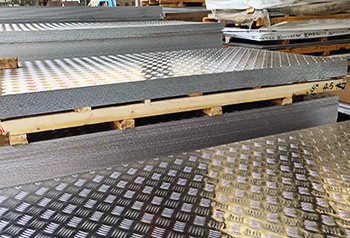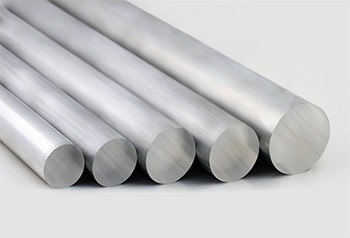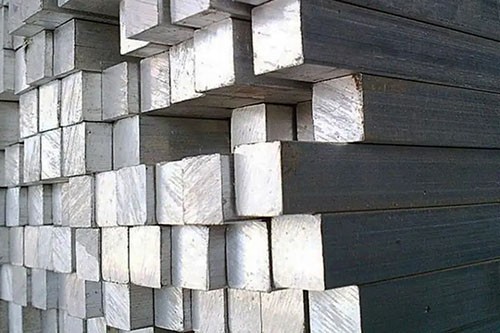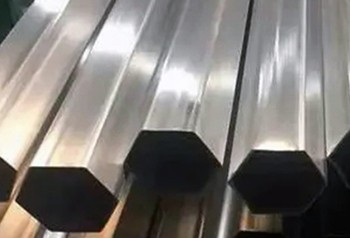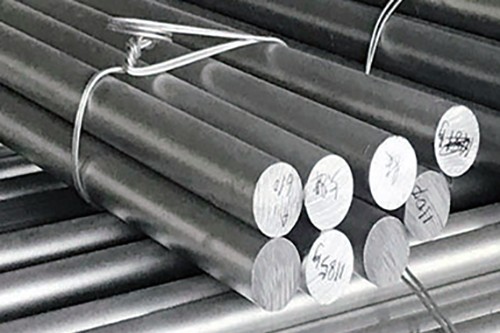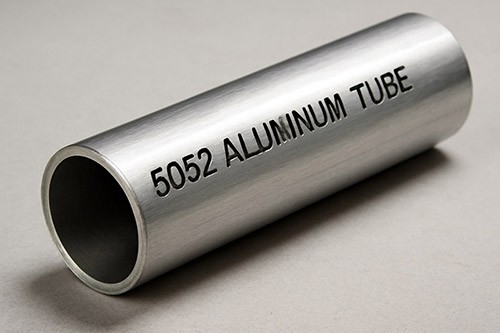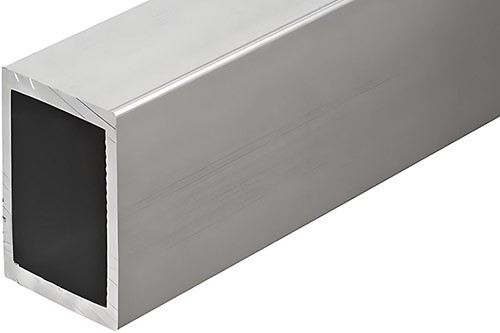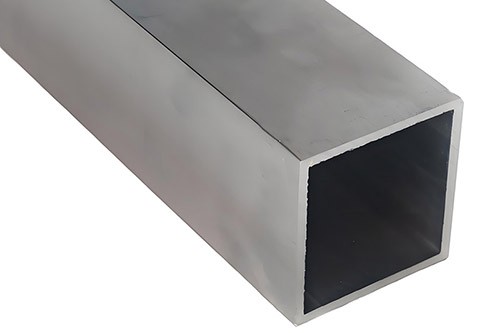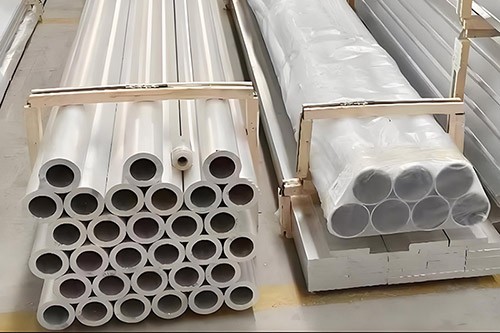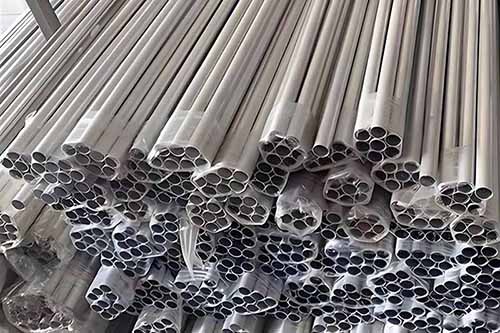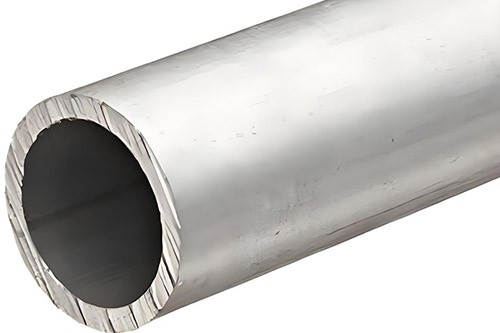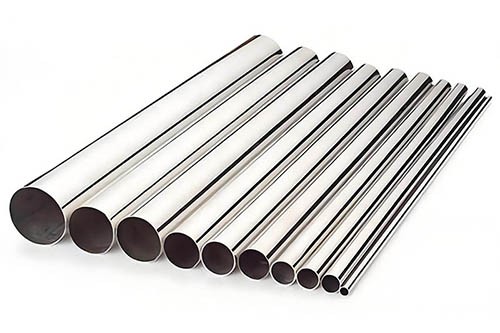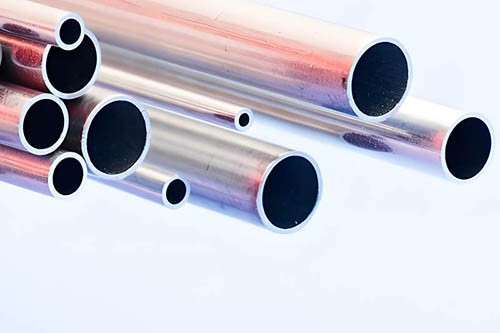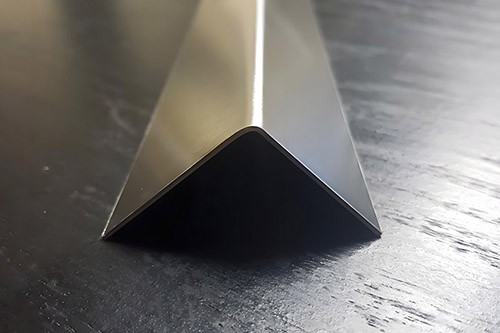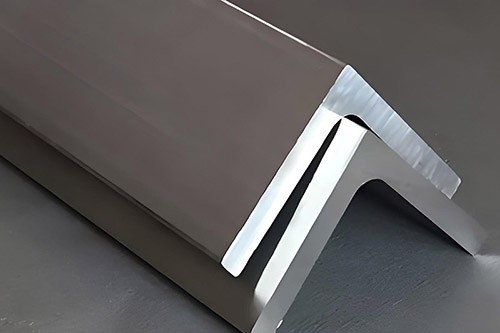5052 H38 Aluminum
5052-H38 is a strain-hardened aluminum-magnesium alloy, known for its high strength, corrosion resistance, and versatility in industrial applications. As part of the 5xxx series, it is non-heat treatable and instead gains its mechanical properties through cold working. The H38 condition represents fully hardened strain-hardening, which is the strongest condition for 5052 aluminum alloy, suitable for high-stress environments.
5052-H38 aluminum alloy is a high-strength cold-worked variant of the 5052 alloy, with its primary components being magnesium (2.2–2.8%) and chromium (0.15–0.35%). This alloy is achieved by extensive cold working to achieve tempering, improving its strength while maintaining good formability.
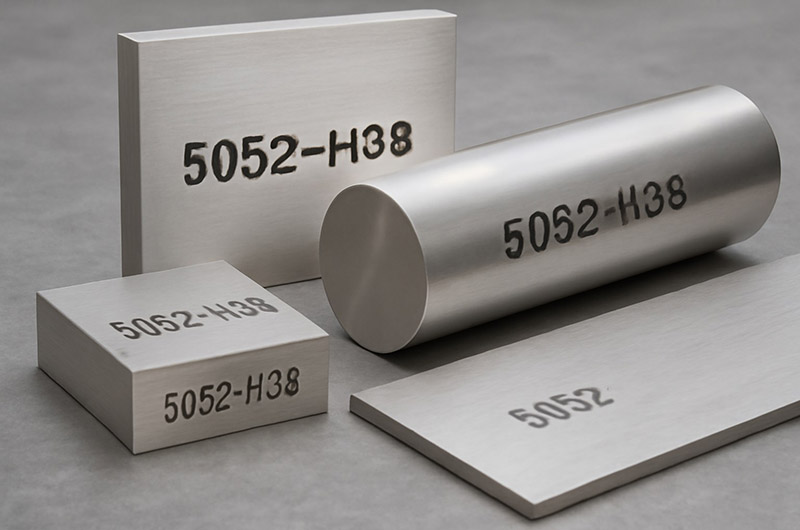
5052 H38 Aluminum Material Properties
- Corrosion Resistance: Excellent corrosion resistance, suitable for marine and humid environments.
- Weldability: Good weldability, commonly welded with ER5356 welding wire while maintaining mechanical properties.
- Workability: Excellent cold workability, suitable for sheet metal forming and deep drawing processes.
5052 H38 Aluminum Chemical Composition
The main components of this alloy are:
- Aluminum (Al): 95.7–97.7% (balance).
- Magnesium (Mg): 2.2–2.8% (main alloying element, used to enhance strength).
- Chromium (Cr): 0.15–0.35% (enhances corrosion resistance).
- Other elements (Iron, Silicon, Copper, Manganese, Zinc): Extremely low content (each <0.4%).
5052 H38 Aluminum Mechanical Properties
- Tensile Strength: 290–300 MPa (42, 000–44, 000 psi).
- Yield Strength: 250–255 MPa (36, 000–37, 000 psi).
- Elongation at Break: 3–8% (varies with thickness; thinner material exhibits lower elongation).
- Hardness: Brinell hardness 77–78, Vickers hardness 87.
- Modulus of Elasticity: 68–70.3 GPa.
- Fatigue Strength: 138–140 MPa (20, 000–20, 300 psi).
These properties make 5052-H38 suitable for applications requiring moderate strength and good fatigue resistance.
5052 H38 Aluminum Physical and Thermal Properties
- Density: 2.68–2.7 g/cm³ (lightweight structural material).
- Thermal Conductivity: 138–140 W/m·K (excellent heat dissipation).
- Melting Point Range: 607–649°C (1, 125–1, 200°F).
- Coefficient of Thermal Expansion: 23.8–24 µm/m·K (low expansion coefficient).
- Electrical Conductivity: 35% IACS (moderate electrical conductivity, suitable for electrical applications).
5052 H38 Aluminum Corrosion Resistance
5052-H38 has excellent corrosion resistance, especially in marine and industrial environments. Its low magnesium content minimizes the risk of stress corrosion cracking, making it an ideal choice for applications exposed to seawater and harsh atmospheric conditions.
5052 H38 Aluminum Workability and Manufacturability
While 5052-H38 is not heat treatable, its hardness can be significantly increased through cold working. This condition strikes a balance between strength and formability, making it suitable for a variety of manufacturing processes such as welding, bending, and machining.
5052 H38 Aluminum Applications
5052 H38 Aluminum in Marine Applications
5052 H38 aluminum alloy has significant advantages in marine applications, particularly in the use of shipbuilding and fuel tanks, especially in terms of seawater corrosion resistance, strength, and workability.
5052 aluminum alloy is a medium-strength alloy commonly used in applications requiring good corrosion resistance and excellent weldability. In the H38 condition, it provides higher strength and hardness compared to the standard H32 or O condition, making it more suitable for marine applications that require higher mechanical loads or more severe environmental conditions.
Application in Ships
Hull Structure:
One of the main advantages of 5052 H38 aluminum alloy is its excellent corrosion resistance, particularly in seawater environments. This makes it an ideal material for external components of hulls. Aluminum alloy components in hull structures are often exposed to saltwater and humidity for extended periods, and 5052 H38 effectively resists seawater corrosion, significantly extending the lifespan of the hull.
Ship Components (such as decks, bulkheads, doors):
In addition to the hull, 5052 H38 aluminum alloy is widely used in other ship components such as decks, bulkheads, and doors. These components require both good corrosion resistance and high strength to withstand physical impacts in marine environments. 5052 aluminum alloy can be welded, and the welded joints maintain high strength, making it suitable for these demanding applications.
Seawater Corrosion Resistance:
In seawater environments, salt and moisture cause ordinary metal materials to corrode, whereas 5052 H38 aluminum alloy forms a dense oxide film that effectively prevents corrosion. Compared to other traditional shipbuilding materials such as steel, 5052 aluminum alloy corrodes at a slower rate, greatly reducing maintenance costs and improving ship safety.
Application in Fuel Tanks
Fuel and Water Tanks:
The application of 5052 H38 aluminum alloy in ship fuel tanks is particularly important. Due to its excellent corrosion resistance, especially to seawater, chemicals, fuel, and other media, 5052 H38 aluminum alloy is well-suited for the manufacture of ship fuel and water tanks. The aluminum alloy material provides a lighter weight for the tank, while also having enough strength to withstand internal and external pressures.
Corrosion Resistance and Sealing:
The corrosion resistance of 5052 H38 aluminum alloy to seawater is especially remarkable, which makes it unlikely to corrode or leak when exposed to saltwater for long periods in marine environments. Additionally, the high material strength of the aluminum alloy gives it excellent sealing properties, ensuring the stability and safety of the fuel tank.
Weight Advantage:
Ship fuel tanks require high strength and corrosion resistance, while also benefiting from lighter weight to improve fuel efficiency and navigation performance. 5052 H38 aluminum alloy, with its light density and high strength, is an ideal material for manufacturing fuel tanks.
Other Marine Applications
Offshore Platforms and Structural Components:
In addition to ships and fuel tanks, 5052 H38 aluminum alloy can also be used in offshore platforms, floating structures, and other components of marine engineering. These structures are often exposed to harsh marine environments and require materials with high strength, corrosion resistance, and ease of processing, all of which are provided by 5052 H38 aluminum alloy.
Anti-corrosion Coatings and Surface Treatments:
Although 5052 aluminum alloy has excellent corrosion resistance on its own, it can be further enhanced in certain marine environments through anodizing treatment. This surface treatment forms a harder oxide layer on the aluminum surface, further improving its resistance to seawater corrosion.
5052 H38 aluminum alloy, with its outstanding corrosion resistance, excellent welding performance, and high strength, is widely used in the marine field, especially in ships, fuel tanks, and other marine structures. It can withstand harsh seawater environments, reduce corrosion issues, and enhance the stability and durability of structures, making it an ideal material choice in marine engineering.
Other Applications of 5052 H38 Aluminum
- Aerospace: Aircraft fuel tanks, fuel lines, aircraft panels, and fuel piping.
- Transportation: Truck trailers, automotive bodywork.
- Construction: Roofing, building panels.
- Consumer Goods: Electronic product housings, household appliances.
- Industrial Manufacturing: Instrument brackets, electrical enclosures, rivets, industrial equipment (e.g., pressure vessels, heat exchangers).
5052 H38 Aluminum Processing and Manufacturing
- Formability: Limited due to high hardness; requires larger bend radii (e.g., 3.2 mm sheet requires 3 times the thickness).
- Machinability: 50% (Medium; requires sharp tools and lubrication).
- Weldability: Compatible with TIG/MIG methods using 5356 filler alloy.
- Corrosion Resistance: Performs excellently in marine and industrial environments due to its magnesium and chromium content.
Processing Considerations:
- Material thickness and processing methods should be selected according to specific load and environmental conditions.
- The H38 state is achieved through work hardening, and it is recommended to perform necessary annealing after forming to reduce residual stresses.
Note: Actual performance may vary due to manufacturing processes, temperature, and material batch differences. It is recommended to conduct tests in critical scenarios for verification.
Comparison of 5052 H38 Aluminum with Other States
Compared to other states of 5052 aluminum such as H32 and H34, the H38 state has higher strength but slightly reduced elongation. This makes it suitable for applications requiring higher strength, with a certain trade-off in formability.
- H38 vs. H32/H34: Higher strength, but lower elongation.
- H38 vs. 5083: Lower strength than 5083, but better formability.
Recommended for you
-
In seawater environments, 5052 aluminum alloy has corrosion resistance properties that are unmatched by many other materials.
-
The 5052 O aluminum plate has excellent formability, making it suitable for the complex curved structures and cold-formed components of ship hulls.
-
5052 H32 aluminum sheet is known for its excellent fatigue strength, good weldability, and corrosion resistance, making it particularly suitable for marine environments and vehicle manufacturing.
-
As a professional 5052-H34 aluminum sheet manufacturer, we provide high-quality products that meet AMS 4017 and ASTM B209 standards, specifically designed for the marine, automotive, and aerospace industries.
-
5052-H36 aluminum alloy is a high-strength, non-heat treatable material in the 5000 series, offering excellent corrosion resistance, especially in marine environments, while also providing good weldability and medium strength.
Other content readers are interested in
-
5052 marine grade aluminium checkered tread plate sheet
5052 Marine Grade Aluminum Checkerboard combines superior corrosion resistance, enhanced traction, lightweight construction and versatility, making it ideal for a variety of marine applications where durability and safety are critical.
-
5052 O H112 Marine Grade Aluminum Bar
5052 O H112 Marine Grade Aluminum Rod is a rod made from 5052 aluminum alloy that is fully annealed to improve workability and tempered to provide strength and resistance suitable for marine applications.
-
Marine Grade Aluminum Square Bar 5052 5A02
Marine-grade aluminum square bars 5052 and 5A02 are two commonly used aluminum alloy materials in marine and corrosive environments, known for their excellent corrosion resistance and mechanical properties.
-
5052 O H112 Marine Grade Aluminum Hexagon Bar
The 5052 O H112 aluminum alloy hexagonal bar has excellent corrosion resistance, making it suitable for the manufacture of ship components.
-
5052 O H112 Marine Grade Aluminum Round Bars
5052 aluminum round bars have excellent formability and durability, making them widely used in the manufacturing of ship components.
-
5052 Aluminum Tube Marine Applicability: Resistant to seawater corrosion; ideal for use in marine components. Complies with ASTM/AMS standards and is suitable for the shipbuilding and aerospace industries.
-
5052 Aluminum Rectangular Tube
As a representative of the 5000 series aluminum-magnesium alloys, the 5052 aluminum rectangular tube, with its excellent corrosion resistance, moderate strength, and lightweight characteristics, has become a core material in shipbuilding, aerospace, and the automotive industry.
-
The 5052 aluminum square tube is made from 5052 aluminum alloy and is processed into a square tube. It belongs to the Al-Mg series rust-resistant aluminum alloy.
-
5052 aluminum round tubing is made from 5052 aluminum alloy, which is a round tubular material.
-
5052 H32 aluminum tube is a typical Al-Mg series rust-proof aluminum alloy tube, combining the process of work hardening and stabilization treatment.
-
5052 Drawn Aluminum Tubing is a specialized aluminum alloy product that is manufactured using a cold drawing process, in which the aluminum material is pulled through a die to achieve precise dimensions and a smooth surface.
-
5052-O aluminum tube is made from 5052 aluminum alloy and processed through annealing (O-temper) to form the tubing.
-
Seamless 5052 aluminum tubing is a high-performance material, famous for its outstanding corrosion resistance (especially in marine environments) and its suitability for various structural and fluid handling applications.
-
5052 Aluminum angle is a structural profile made from 5052 aluminum alloy, which is renowned for its excellent corrosion resistance, particularly in marine environments.
-
5052-H32 angle aluminum is an L-shaped structural profile made from 5052 aluminum alloy, which is processed in the H32 temper.
Recommended for you
-
5052 marine aluminum alloy is a high-strength, corrosion-resistant, easy-to-process and weld aluminum alloy, which is widely used in the manufacture of ships and marine structures.
-
5083 is basically used to manufacture ship hulls because of its relatively high strength and good corrosion resistance.
-
5059 aluminum is both a high-magnesium and high-zinc alloy, offering excellent corrosion resistance and fire resistance.
-
5086 aluminum alloy is irreplaceable in hull and deck applications in marine operating environments due to its unique seawater corrosion resistance, excellent low-temperature toughness, and good weldability.
-
5383 aluminum offers excellent fatigue resistance and crack resistance, and its unique properties make it irreplaceable in the design of high-speed vessels and marine structures that require long-term fatigue resistance.
-
5456 aluminum, with its unique high strength, exceptional fatigue resistance, and resistance to stress corrosion cracking, is irreplaceable in heavy-duty hull structures.
-
5754 aluminum is a medium-to-high strength alloy with excellent weldability, a low tendency for welding cracks, and high strength in both the weld joint and the crystalline metal.
More content of interest to readers
5086 Aluminum vs 5052 5083 vs 5052 Aluminum Sheets A Comprehensive Guide for Marine Uses 5052 Marine Aluminum: How to Improve Its Corrosion Resistance 3003 vs 5052 Marine Grade Sheet Material 5052 aluminum plate thickness standards and selection for shipbuilding 5052 marine-grade aluminum applications and advantages in shipbuilding 5052 and 5083 aluminum characteristics in saltwater Comparison of Marine Aluminum 5052 and 6061 Common marine aluminum plates 5083 5052 Marine grade 5052 checker aluminum plate for ship decks 5052 Marine Aluminum Plate for Yacht Construction 5083 5052 6082 6061 Aluminum sheet metal for boat building Marine grade aluminum 5052 5454 plate for shipbuilding
You might be interested in: Marine Grade Aluminum 5052 5052 aluminum 5052 aluminum sheet 5052 h32 5052 h34 5052 h32 aluminum 5052 aluminum plate 5052 0 aluminum sheet al5052

